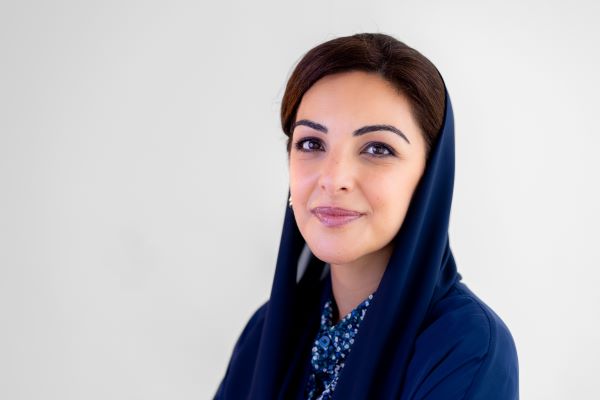
Muscat The world produces approximately 300 million tonnes of plastic waste every year and half the plastic waste comes from single-use products, such as plastic bottles and plastic cutlery, used just once and then discarded, Palmade co-founder Lamis Al Hashimy says.
She is a first generation family-business owner and the company makes a range of eco-friendly disposable cutlery made from natural materials, including discarded leaves from the date palm tree.
In order to respond to this global problem and make a better choice we at Palmade are committed to bringing innovative and locally developed solutions that make it easy for our communities to adopt eco-friendly products and reshape our future.
“We are on a quest to build a new economy based on date palm-derived products that help replace single-use plastics. More than just making products, our goal is to assist our community in transitioning to a more sustainable way of life,” she further added.
In an exclusive interview with Times of Oman Lamis outlines Palmade’s unique initiatives and wide range of products with an aim to reduce our environmental impact, ways to reduce single-use plastics, and help in transitioning away from plastics on a mission mode to restore balance in our planet.
Excerpts:
What has been your inspiration to start Palmade Biodegradable Cutlery and what are your expansion objectives expansion into Oman?
Palmade embodies the connection most of us in the region have with the date palm tree. Throughout history, this boun0ful tree has always provided its benefits from nourishing fruits, shelter, medicinal properties, and today; through Palmade, it is playing a role in addressing the climate crisis we are all facing.
In our seven-year journey, we were successfully able to unlock value from the discarded biomass of the date palm leaves, and we believed it was important that the product is sustainable from both, a manufacturing process, and a finished good solution.
Our inspiration always stemmed from the intention to create a meaningful and purposeful product that provides a solution. The date palm tree made our realisation a reality. It was also very important to us that our innovation uses local resources; making it a more sustainable and impactful product that addresses a global problem with a local solution.
With the expansion, which businesses do you plan on targeting and how would your products be of specific benefit to them?
Our business model is currently that of a B2B, where our products are sold to hotels, restaurants, airlines, and other hospitality businesses. The businesses that purchase Palmade cutlery are usually sustainably driven through the tone at the top with leadership that supports initiatives geared towards sustainable alternatives. We consider these businesses pioneers in the industry and believe they are paving the path for other businesses to follow suit.
We are very keen on also expanding to a B2C model in the near future. We believe that our end customers have the awareness and preparedness to switch from single use plastics to biodegradable alterna0ves, and we would like to empower them with that choice.
Do you plan on opening manufacturing units in Oman? With the expansion, how do you see the employment rate increasing?
We continue to consider our business that of a manufacturing startup; and as we expand our market share and grow our business, we are keen to expanding to other GCC countries, such as Oman. Not only is Oman a true neighbour to the UAE, we also believe that its values towards preserving nature and addressing our climate crisis are aligned with that of the UAE.
The markets that are most compatible with us to expand to are those that value the purpose of sustainability and intend on eliminating the use of single use plastics on a large scale.
We have been very fortunate with the UAE’s vision on eliminating single use plastics in the next two years, and we hope that other countries will follow suit.
How are you reaching out to potential consumers to make the switch to using sustainable products? Are you facing any challenges?
The circular nature of our product has helped us tell our story in a way that resonates with our customers and especially those that are interested in contributing to supporting our environment. The fact that our cutleries are compostable and can be used to plant more trees allows for our community to come together plays its role in achieving the circularity of our products. This sense of collaboration fosters the ethos that is crucial to supporting a more sustainably driven mindset in our society.
Convincing businesses to switch to eco-friendly alternatives has been a complex endeavour. Many factors and existing stigma around sustainable products hinder the decision-making process for businesses. Although businesses express their desire to become more eco-friendly, they are not willing to compromise on the additional cost that accompanies sustainable products. It is important for businesses to understand the underlying tangible and intangible value in choosing sustainable products, which can only be realised in the long term.
We are continuously striving to raise awareness on the importance of sustainable decision making through participation in conventions and industry specific panels and to highlight the value that can be generated from these sustainable choices.
Having started your business in the UAE, as you expand regionally, do you see a difference in the acceptance of using sustainable products?
In the UAE, there is a growing awareness of environmental issues and the desire to address them. The UAE government actively promotes sustainability through policies, events, and incentives. Hosting COP28 in ExpoCity Dubai demonstrates the position the UAE is taking in addressing climate change and its commitment to advancing global climate ac0on. As a result, we are seeing an increase in interest from businesses that are keen on playing their part in the sustainable space.
At the end of the day, businesses should not aspire to ride the wave, but instead, create the waves of sustainability that lead its community to a more sustainable way of living.